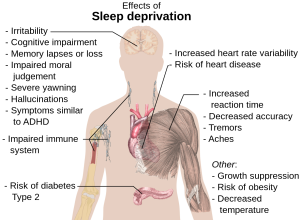Many parents expect some form of sleeplessness when they welcome a new baby, but for a sizeable number of families, the degree of sleeplessness can be overwhelming. Sleep deprivation – as I am often reminded by people advocating sleep training – is a form of torture and we should consider it such when we consider the effects on parents (predominantly mothers). However, if sleep deprivation from a newborn or even older infant was akin to torture, it’s hard to think about why we would have evolved for it. The truth is, much of what causes struggles for us have to do with a mismatch between our biology and our culture.
Expectations for infant night wakings, where they need to sleep, and feeding are all unrealistic.
Because of this, we often tell families they have to change their infant to match their expectations, but I will say now that’s not ever my goal. Without ignoring parental needs, I find it far more important to accept and respect the infant’s biological needs while also finding ways to get parents through – not out – of these hard times.
So I start with a bit of a warning: This advice isn’t for you if you hope to be able to continue your life as it was pre-baby and not experience any changes to your sleep whatsoever; in short, I will not advocate any type of mainstream sleep training. That said, here are some ways to help deal with sleep deprivation, or even better, avoid it altogether.
To Help Avoid Sleep Deprivation
Co-sleeping or Bedsharing. This must be done safely (and yes, it can be), but co-sleeping has been found to increase sleep stretches for many families. The importance of increased stretches of sleep (even if they don’t increase overall sleep) is that they assist the body in going through a full cycle of sleep (or hopefully more than one) which is really what keeps the body and brain from experiencing the strong cognitive and emotional effects of a lack of sleep[1][2]. If you can bedshare, or at least co-sleep (which one should be doing for the first year according to many health agencies), and you’re breastfeeding, this may be one of the life savers for your sanity.
Check Your Baby’s Sleep. Although we have a real problem in our society whereby people really don’t understand what constitutes “normal” infant sleep, there are cases where babies – and therefore moms – truly are suffering from severe sleep struggles. Sadly parents often believe the problem is with the sleep when in fact, the sleep problems are like the canary in the coal mine – they reflect an underlying problem and this is simply your first cue to look at other problems. So before you panic about your infant’s sleep, first check if what you are experiencing falls within the realm of biologically, not culturally, normal and if needed, consult an appropriate source of support. For example, if it seems your baby may have breastfeeding difficulties, you need to speak to an International Board Certified Lactation Consultant who should be able to help you.
Nap When Your Baby Naps. This is one of the easiest ones and yet the one that most new parents avoid. If you’ve only got one baby, nap. Seriously. Take your rest where you can get it and realize that the other things you feel you must do while your baby naps really, honestly can wait. Now, the caveat here is for those of you with more than one child and who cannot always get down for a nap during that coveted time. If this is you, what you can try to do is at least make that time a “rest” time for you and your other kids so that you aren’t feeling constantly frazzled. If your other kids are old enough you may be able to rest or even nap, but when they’re younger, make it a story time, a cuddle time, heck – even watch TV if that gives you the downtime you need.
Sleep In When Possible. Most babies struggle to be apart from their primary caregiver at night, but come morning are quite happy to go to someone else for a while. If you have the capacity to get help in the morning so you can lay in for a couple hours, it can make a world of difference to your day. Often parents report falling into deep sleep when their brain knows their baby isn’t there and that full cycle of deep sleep can be restorative and keep us from going over the edge.
Despite our best efforts though, sleep deprivation happens and we have to make it through the days. The sleep ins are a good one to add to this as well, but in addition there are a few other things to consider.
To Recover From the Negative Effects of Sleep Deprivation
Moderate Your Caffeine Usage. Okay, many of you sleep deprived parents will relish that cup of coffee first thing in the morning – and that’s okay! – but you also want to be careful with it. Although the research shows that low doses of caffeine can actually prevent the negative cognitive effects of sleep deprivation[3][4], it also shows that caffeine taken too close to bedtime (which is really within 6 hours) creates sleep disturbance[5] and that usage in general may negatively influence sleep overall, but especially for sleep recovery (for a review, see [6]). This means that while that cup first thing in the morning can be helpful, using too much or taking it too late may result in a cycle of sleep deprivation followed by the use of more caffeine to stay alert which exacerbates the sleep deprivation. One recommendation is to switch to half-caf-half-decaf so you’re cutting back but still getting the amount of caffeine needed to counteract some of the negative effects or switching to decaf later in the day and hoping for a bit of a placebo effect. Of course, as tired as you are, don’t have caffeine after a certain point – that point being dependent upon when you plan on heading to bed.
Power Naps. If you can get 20-30 min a day where your partner or someone else can help, you can take a quick, but very beneficial, power nap. Individuals who take power naps show increases in cognitive performance, positive mood, and short-term memory[7], all while not impeding nighttime sleep[8]. I acknowledge that this involves asking for and receiving help – neither of which is very common in our society – and so if you are unable to seek out help in one way or another, this won’t be an option. However, I urge you to do your best to get someone – a friend, a neighbour, a grandparent – to come over and help for just 30 minutes so you can get some sleep.
Restorative Yoga. This is not active yoga, but rather is designed to de-stress and relax you, something everyone could use, but especially parents who just need some time to themselves. If you can afford and have the time to go to a class, wonderful, but if you’re like many others, you can still find some time at home and do a class online. Again, you may need to ask for some help from a partner or someone else (although if your baby is happy chilling close to you while you do this, great), but even just once a week this type of relaxation can have long-lasting effects.
Progressive Relaxation. This is a technique that helps you relax by slowly relaxing each muscle group one at a time along with a bit of guided meditation. If you know how to do it yourself, you can just do it, but if not, there are places online where you can listen to or read up on the meditation and instructions. Like restorative yoga, this gives the body a break which enables you to relax and reduces the stress that often accompanies sleep deprivation. When used before bed it can also lead to deeper sleep which can help you feel more restored if you are not getting as much as you are used to.
***
A certain degree of sleep disruption is simply par for the course when it comes to parenting and to expect otherwise is to place highly unrealistic expectations on our babies. Unfortunately, our society doesn’t always agree with this and can place highly unrealistic expectations on new parents as well leading to the type of sleep deprivation that is unhealthy. Hopefully these suggestions can help you either get through the periods of sleep deprivation or avoid it altogether.







De-stress, not distress (in restorative yoga) 😉
Lol – thank you 🙂
Thanks for another great post Tracy. I’ve come to rely upon your thoughtful, well-researched posts. I think adult caretakers of elderly and dying parents could also use this advice.
Thank you for such a sensible and supportive article!!! This is exactly the kind of things parents to be can benefit from as they mentally prepare for the new roles ahead. SO much more balanced than many approaches around. Light to you and yours. Thanks!
THANK YOU! I appreciate your perspective!
[…] • https://gku.flm.mybluehost.me/evolutionaryparenting.com/coping-with-sleep-deprivation/ […]